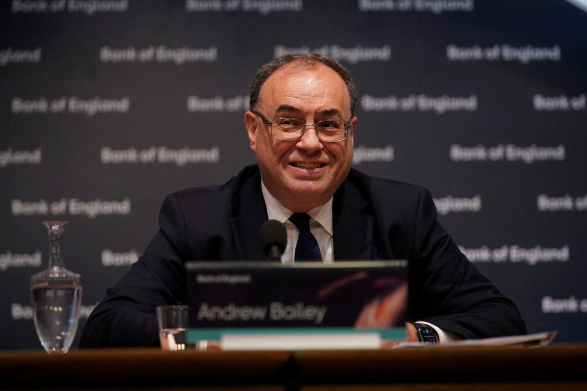On 12thOctober the Financial Review[1]reported that Andrew Bailey governor of the Bank of England (BoE) has given Britain’s pension funds three days to get their over-leveraged houses in order effectively ruling out any extension of the BoE’s £65 billion ($114 billion) bond-market rescue.
Following Mr Bailey’s remarks to the Institute of International Finance’s annual meeting in Washington on Tuesday (Wednesday AEST) the pound fell sharply against the US dollar reaching an October low of $US1.09.
Markets had clearly hoped that the Bank of England would extend its fortnight of support to Britain’s volatile sovereign-bond market and vulnerable defined-benefit pension schemes at least until the government’s next big fiscal announcement on October 31.
Mr Bailey on the other hand was unequivocal saying that a central-bank intervention to protect financial stability should be strictly temporary.
“We will be out by the end of this week. We think the rebalancing must be done ”he said. “My message to the funds involved and all the firms involved in managing those funds is: you’ve got three days left now. You’ve got to get this done.”
Despite the harsh words the pound rose in early London trading on Wednesday after a Financial Times report appeared to contradict Mr. Bailey’s remarks. The Bank of England had privately indicated to bankers that it might extend the bond-buying program past the deadline according to the FT though it was unclear when that guidance was given.
Long-term bonds plummeted in late September after the government of new Prime Minister Liz Truss announced plans to cut taxes by £45 billion per year and fund the cuts with additional borrowing.
When bond prices fell pension funds which had hedged their exposure to falling long-term interest rates but now faced the opposite were forced to make margin calls on their hedges by selling more bonds.
Following record increases in 10-year 20-year and 30-year government bond yields the Bank of England intervened stating that it would spend up to £5 billion per day purchasing gilts that no one else wanted.
This calmed the market to the point where the Bank of England only had to spend a fraction of the £65 billion it had set aside for the scheme.
However in recent days gilt yields have begun to rise again as investors have become concerned about the October 14 cliff edge when the Bank’s intervention is set to end.
On Monday October 9th the Bank stated that if necessary it would purchase larger quantities of bonds in the coming days to ensure that the pension funds’ liability-driven investment (LDI) funds could sell bonds in an orderly fashion as they rebalanced their risk exposures before Friday October 13th.
The Bank of England also launched a repo facility that will last beyond this week allowing pension fund bankers to accept assets other than gilts as collateral reducing the pressure on LDIs to sell only bonds when faced with margin calls.
The Bank then announced on the 10th that it would begin purchasing index-linked gilts as well as conventional bonds to ward off the threat of “dysfunction” in that sector of the market as well.
However Mr. Bailey’s remarks in Washington suggest that the central bank’s willingness to act as an indefinite guarantor is limited.
One reason could be that the Bank’s bond-buying binge contradicts its monetary policy.
On that side of the house the Bank was about to begin selling government bonds purchased during COVID-era “quantitative easing.” Instead it is now purchasing bonds.
The Bank of England is also raising interest rates to combat near-double-digit inflation whereas buying bonds lowers yields.
The Pensions and Lifetime Savings Association urged the Bank of England on Tuesday to extend the bond-buying program until at least October 31 and “possibly beyond.”
Chancellor Kwasi Kwarteng has moved a fiscal statement he had planned to deliver in late November to October 31 with the intention to reduce debt in the medium term given the heavy government borrowing for tax cuts and energy subsidies in the short term.
However Britain is mired in a cost-of-living crisis fueling widespread industrial unrest and a surge in support for the opposition Labour Party. As a result markets are concerned that the beleaguered government will be unable to implement the necessary spending cuts to reduce the debt pile.
Mr. Kwarteng hopes that supply-side reforms will spur growth and keep his tax cuts from becoming inflationary but these too may be politically unpopular.
Meanwhile the Office of National Statistics reported that Britain’s unemployment rate fell to a 48-year low of 3.5% in the three months to August indicating that the BoE still has work to do on inflation.
The tight labor market fueled a 6% increase in average weekly earnings which could lead to inflation. In real terms incomes have fallen at a near-record rate in the last year causing the government political headaches.
[1]https://www.afr.com/world/europe/you-ve-got-three-days-boe-boss-puts-squeeze-on-pension-funds-20221012-p5bp23

